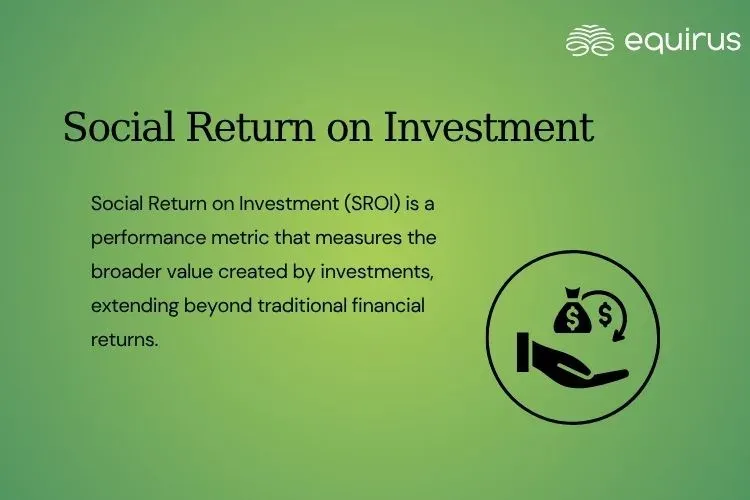Social Return on Investment

Key Highlights
-
SROI is a performance metric that measures the broader value created by investments, extending beyond traditional financial returns.
-
The primary purpose of SROI is to evaluate whether an investment delivers measurable social value relative to its cost.
What is Social Return on Investment (SROI)?
Social Return on Investment (SROI) is a performance metric that measures the broader value created by investments, extending beyond traditional financial returns. It quantifies the social, environmental, and economic impact generated by a business activity or project in monetary terms, providing a more holistic understanding of value creation.
SROI helps investors, policymakers, and organizations assess how efficiently capital is being used to deliver positive social outcomes alongside financial gains - an increasingly important consideration in impact investing and sustainable finance.
Purpose of SROI
The primary purpose of SROI is to evaluate whether an investment delivers measurable social value relative to its cost. It provides insights into how capital allocation can create long-term societal benefits, such as improved education, healthcare access, environmental preservation, or community development.
Key Components of SROI
An SROI analysis typically involves:
-
Input: The financial and non-financial resources invested.
-
Output: The direct, tangible results of an activity or project.
-
Outcome: The broader, long-term social or environmental change that results.
-
Impact Valuation: Assigning a monetary value to social and environmental outcomes to calculate the SROI ratio - e.g., an SROI of 3:1 means ₹3 of social value is created for every ₹1 invested.
Applications of SROI
SROI is widely used in impact investing, social enterprises, development finance, and corporate sustainability initiatives. It enables investors and institutions to align portfolios with ESG goals and to quantify non-financial performance.
In capital markets, integrating SROI frameworks supports sustainable investment strategies, green bond assessments, and public-private partnerships that emphasize both profitability and social progress.
Limitations of SROI
While powerful, SROI analysis faces challenges such as:
-
Data Subjectivity: Assigning monetary value to intangible social benefits can be complex.
-
Standardization Issues: Lack of uniform methodologies may lead to inconsistent results.
-
Long-Term Tracking: Measuring social impact often requires extended timeframes, making near-term comparisons difficult.
